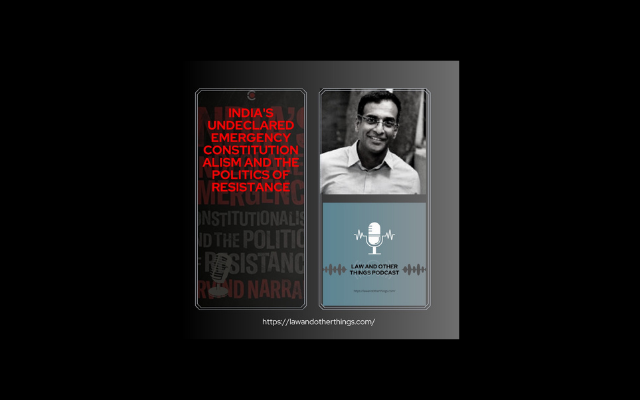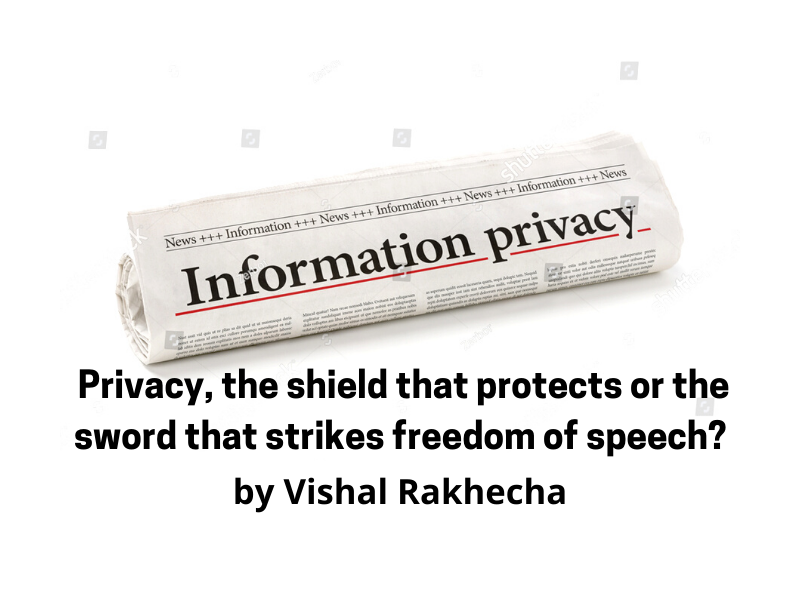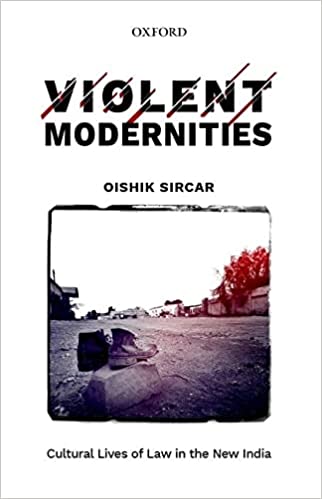The Editorial Team of the ‘Law and Other Things’ Blog is organizing the 3rd Courts and the Constitution Conference in collaboration with its institutional sponsors, the Centre for...
In this episode, Shanthan (Senior Analyst, LAOT) interviews Arvind Narrain, author of the recently published book "India's Undeclared Emergency -Constitutionalism and the Politics of Resistance". The...
We are excited to launch our podcast series! Through this podcast series we intend to bring to our listeners conversations with some great people on a wide range of topics covering law, politics...
[As part of our New Scholarship section, we have been inviting discussants to respond to the public law-themed articles featured in Volume 5 the Indian Law Review. You can access all the posts in...
[As part of our New Scholarship section, we have been inviting discussants to respond to the public law-themed articles featured in Volume 5 of the Indian Law Review. You can access all the posts in...
Introduction On 29th December 2021, a Single Bench of the High Court of Jammu & Kashmir [“J&K High Court”] quashed the detention order of Umar Fayaz Mir on the ground that all documents...
[Ed Note: Over the next few weeks, we will run a book discussion on Oishik Sircar’s “Violent Modernities: Cultural Lives of Law in New India”. This is the introductory post by Adil Hasan...
[Ed Note: In the conclusion to our blog round-table book discussion, Danish Sheikh writes a response to the reviews for Love and Reparation: A Theatrical Response to Section 377 in India. The...
Privacy, the shield that protects or the sword that strikes freedom of speech? Summary by Harsh Jain
[As part of our New Scholarship section, we have been inviting discussants to respond to the public law-themed articles featured in Volume 5 the Indian Law Review. You can access all the posts in...
[Ed Note: In this post, Prasidh Raj Singh responds to the arguments made by Monika Polzin in her paper titled “The basic-structure and its French and German origins: a tale of migration, integration...










